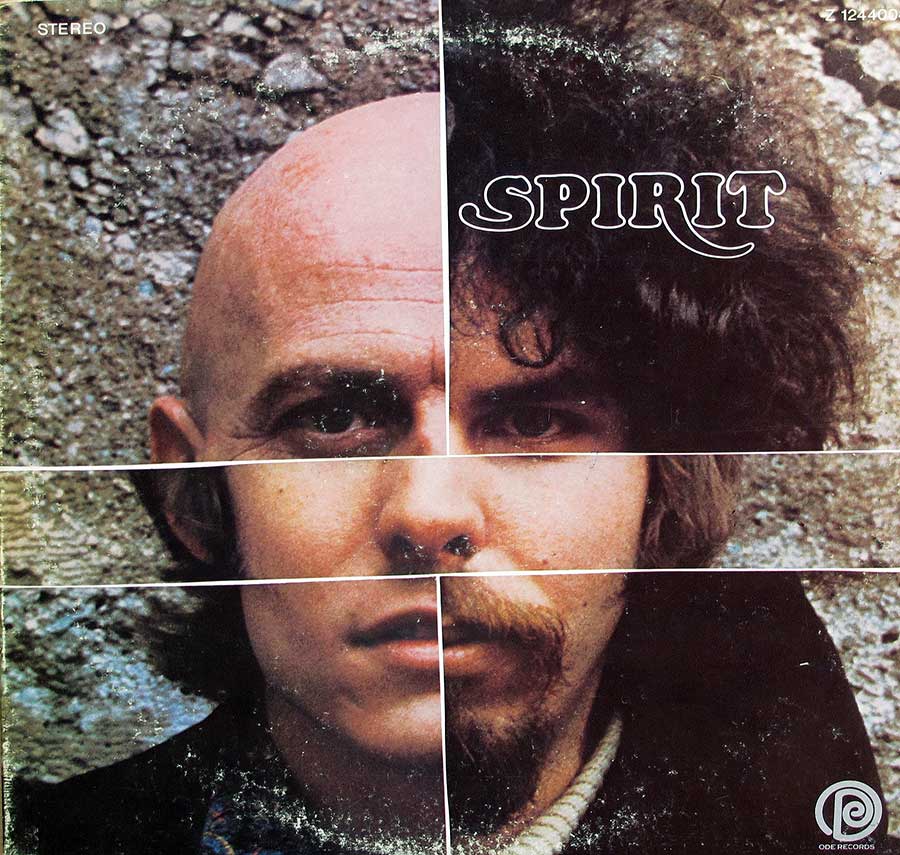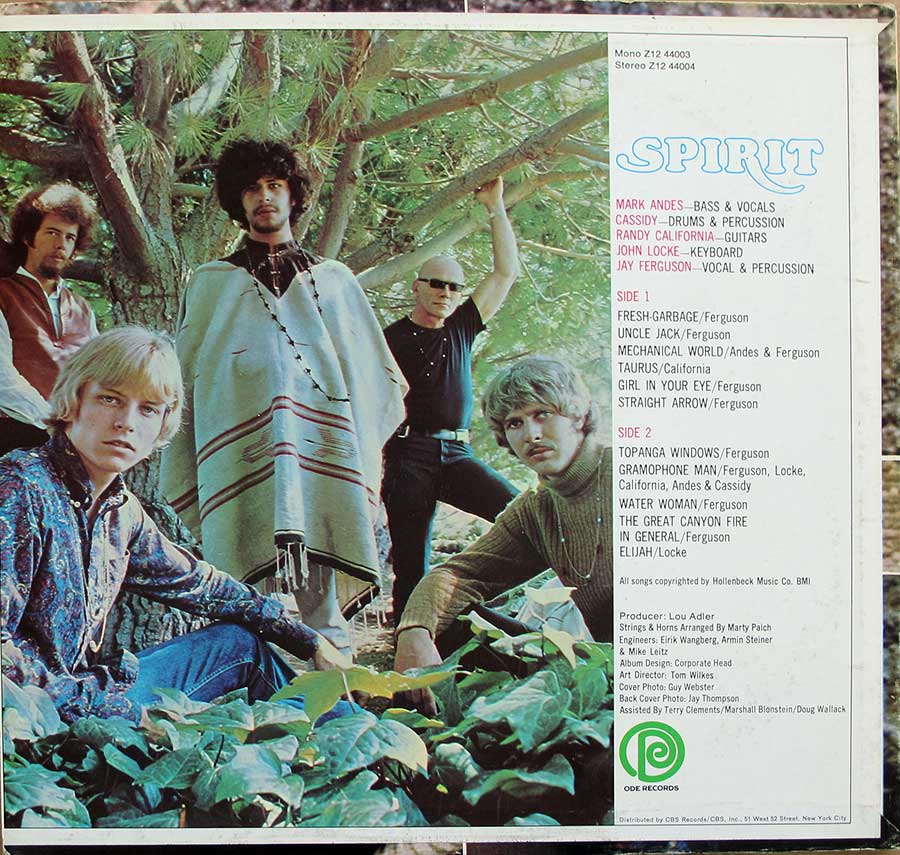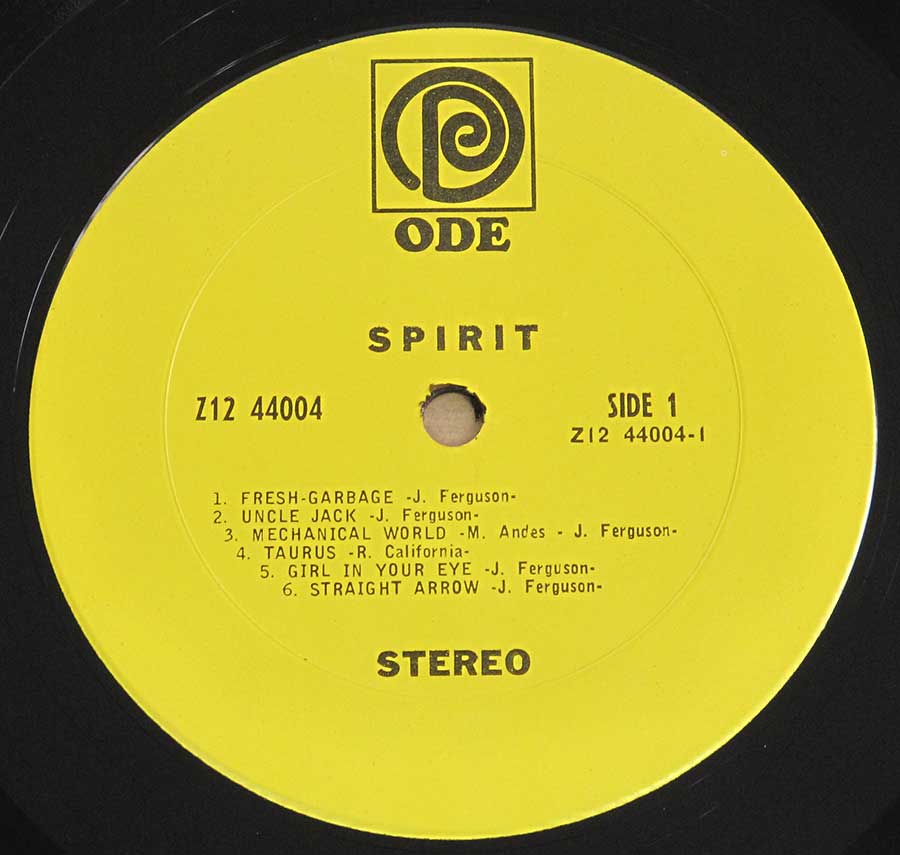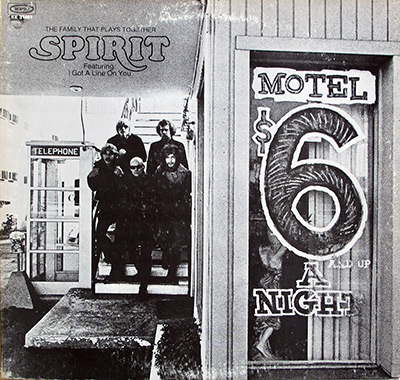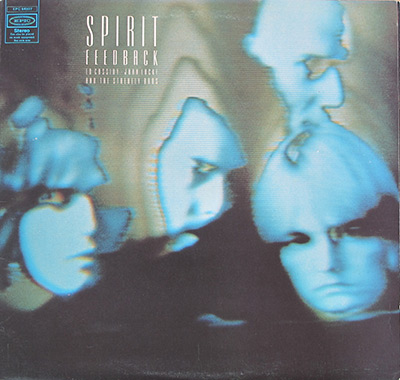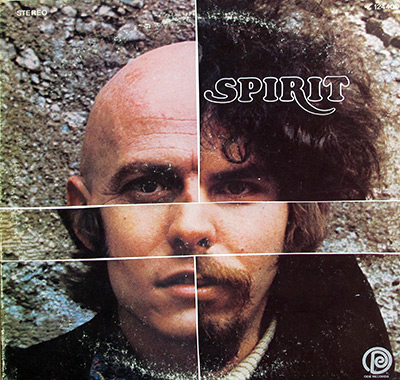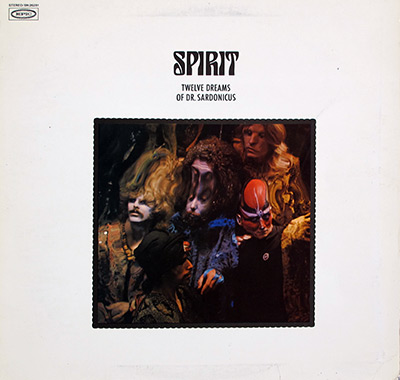Lou Adler, Lou Adler is the quiet kingmaker who keeps turning Los Angeles into a hit factory. I first clock him in the late 1950s and early 1960s, steering and producing Jan & Dean, then in 1965–1967 at Dunhill guiding the Mamas & the Papas as their harmonies took over AM radio. In 1965 he helped spark The Grass Roots concept, and by 1967–1968 he was producing the Monterey Pop film, bottling that whole scene on celluloid. In 1971 he produced Carole King's "Tapestry" for Ode, and in 1971–1974 he captured Cheech & Chong's chaos on record. By 1973–1975 he was backing The Rocky Horror story from stage to screen. Lou Adler Wiki
SPIRIT - S/T SELF-TITLED 12" Vinyl LP Album
- ODE RECORDS
Spirit's self-titled debut album is one whose multifarious experimentalism owes a lot to the contemporary successes of The Beatles' Sgt. Pepper's Lonely Hearts Club Band and Pink Floyd's The Piper at the Gates of Dawn. It marked the humble beginnings and grand aspirations of its eponymous authors. The eclecticism of Randy California's writing coupled Barrett's psychotropism with Morrison's West Coast bohemianism; and although the result proved somewhat inaccessible to the mainstream masses (at least commercially), it made the project ripe for underground FM airtime. The band would later curtail its psychedelia, focusing on a broader array of genres. This release was published first by Ode Records in 1968.
